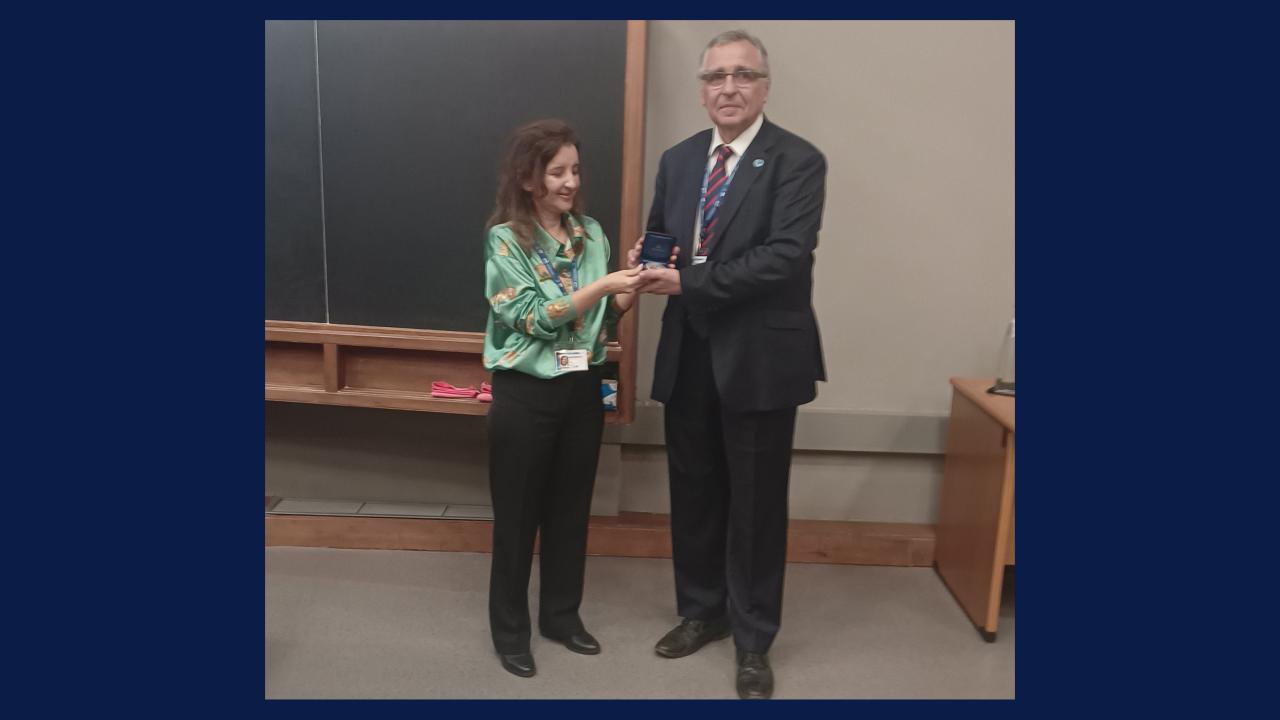
As a child in Bulgaria, Slavik Tabakov was fascinated by the X-ray equipment of his grandfather’s medical studio, located on the first floor of the family home. Looking back, he recognizes this early curiosity as the seed that would blossom into a lifelong passion for medical physics — and a career that helped transform the field into a fully recognized global discipline, taught to thousands of students worldwide.
Having started his career in the 1980s, at a time when the world had fewer than 10,000 medical physicists globally, most of them specializing in radiation therapy, Tabakov chose to focus on medical imaging. Computed Tomography, Magnetic Resonance Imaging, and ultrasound technology were emerging during those years, destined to change modern medicine. “I had the chance to see one of the very first manufactured MRI scanners when I was still a young medical physicist. It was obvious then that this technology was going to transform medical diagnosis and that the world was going to need many specialized professionals capable of using these powerful tools,” he explains.
With this vision in mind, after graduating from the Technical University of Sofia and starting a career at the Medical University Plovdiv, Bulgaria, Tabakov moved to London in 1991 to work at King’s College Hospital and King’s College London, where he stayed until his retirement in 2023. There, he became the founding director of two master’s degree programmes in clinical sciences, focusing on medical physics and clinical engineering. Between 2000 and 2018, under his leadership, the courses expanded to become some of the largest of their kind in the world.
However, Tabakov’s dedication to expanding the reach of medical physics extended far beyond his own institution. Over his career he helped establish eighteen master’s programmes in medical physics around the world, and he especially strongly supported the development of his profession in low- and middle-income countries, also through his 30-year involvement with ICTP.
Tabakov first visited the Centre in 1996, as a lecturer at the ICTP College in Medical Physics, which he has co-directed since 2002. “Over the years the college has trained about 1500 people from 82 countries,” he explains, adding “I met so many students thanks to this college! Several of them grew up to become professional leaders in their countries and further, internationally.”
Tabakov has also contributed to innovating the way medical physics is taught. In 1996, he with colleagues from Italy and his wife Dr. Vassilka Tabakova, also a medical physicist and a longstanding friend of ICTP, were part of the team that introduced e-learning in medical physics at the ICTP college. “The number of medical physicists worldwide started growing much faster and went from 12,000 in the mid-90s to the current community of about 30,000 professionals, also thanks to the e-learning tools,” he recounts. In 2004, Tabakov and his collaborators were awarded the Leonardo da Vinci Award of the European Union for introducing e-learning in medical physics. Tabakov is also the promoter of the Encyclopaedia of Medical Physics, a multilingual reference project he launched in 2005. It now includes scientific terms in 31 languages and has over 400 contributors from 36 countries.
In May 2025, during the Alpe-Adria European Conference on Medical Physics hosted by ICTP, Tabakov received the Honorary Medal of the European Federation of Organisations for Medical Physics. The award recognises his numerous contributions to the field and the long-lasting impact of his work. Among his many achievements are his long-standing commitment to the ICTP College in Medical Physics and his involvement as a scientific advisor to the Advanced Master in Medical Physics, which ICTP runs jointly with the University of Trieste, with the support of the International Atomic Energy Agency (IAEA).
Perhaps the secret to such a successful career lies in the passion Tabakov seems to put in everything he does, from promoting medical physics to teaching his students and pursuing an interest in Christian art. “I have always believed that science has to go hand in hand with other fields, such as philosophy, history and art,” he explains. This philosophy is reflected in the ICTP College in Medical Physics tradition to hold special sessions at the end of several days per week, where participants are encouraged to socialise and benefit from the cultural richness they encounter at ICTP. “In this way they get to know each other better, they can form new friendships and a network through which they can help each other,” he concludes.
















